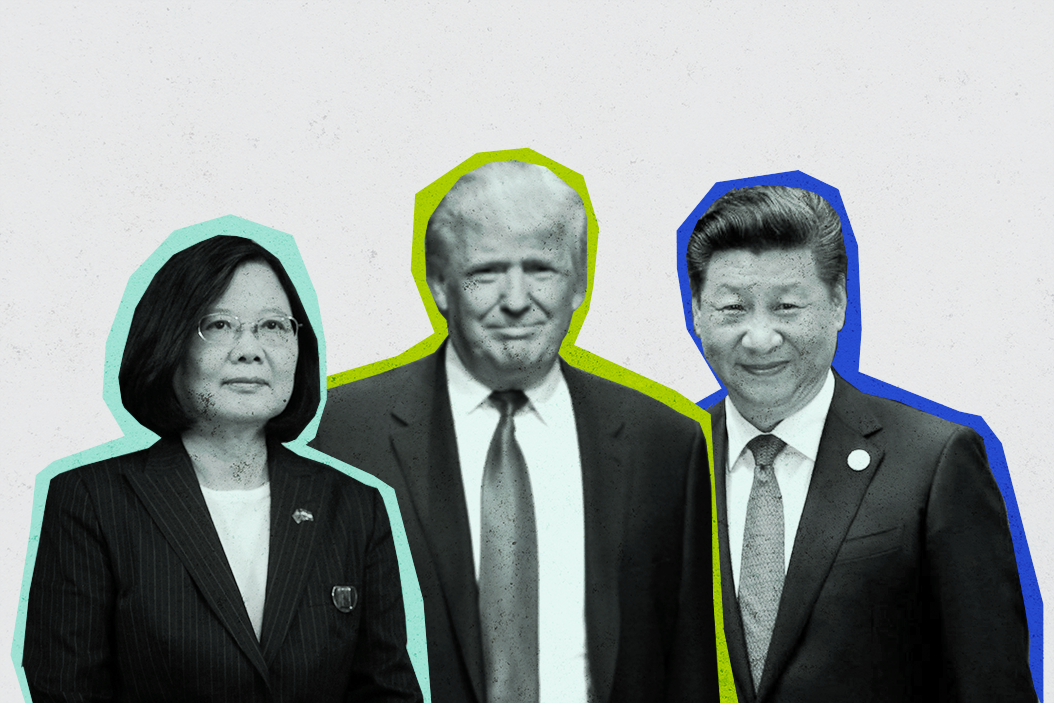October 01, 2020
Tensions over Taiwan have surged in recent weeks.On September 19, US Undersecretary of State Keith Krachvisited Taiwan, and Beijing responded by launching military exercises and sending 16 fighter jets and two bombers careening through Taiwan's airspace.
Krach was in fact the second notable US visitor to the island in just two months. In both cases, Beijing responded with a show of force. The US is reportedly also considering the sale of precision-guided missiles to Taiwan. China has responded with threats of sanctions against US companies.
The message from Washington is clear. Though China's president Xi Jinping has signaled his intent to eventually re-establish Chinese control over Taiwan, the Trump administration, with broad support from Democrats, will stand with Taiwan against Beijing's pressure for reunification with the mainland.
Officially, Washington continues to adhere to a "One China policy," which recognizes Taiwan as part of China. But the US also maintains a "robust unofficial relationship" with Taiwan and has sold Taipei plenty of weapons to defend itself against any Chinese attempt to take the island by force.
In part, this creative ambiguity, which dates from 1979, was an attempt to buy time. The goal was to prevent a conflict over Taiwan until China became a more open and democratic society. That hasn't happened. What has changed is the military balance of power in East Asia. China has spent trillions to modernize its military and to equip it with 21st century weapons to defend its interests in East Asia. We've seen that recently in the South China Sea, Hong Kong, and increasingly with Taiwan.
The Trump administration's trade war has given President Xi ample reason to flex China's military muscle, and COVID-19 has upped the ante further by giving him new incentive to divert domestic attention from early mismanagement of the virus and the economic fallout that followed.
Taiwan, meanwhile, has struck a tough pose of its own. Despite predictable saber-rattling from Beijing, Taiwan's voters re-elected Tsai Ing-wen, an advocate of firm resistance to pressure from Beijing, in January. In August, Taiwan announced record-high defense spending.
A history of confrontation. In 1996, China fired ballistic missiles into the sea to intimidate Taiwan, and US President Bill Clinton responded by ordering two US aircraft carriers into the Taiwan Strait to back Beijing down. It worked, but that was 24 years ago.
In 2001, a mid-air collision of US and Chinese aircraft (unrelated to Taiwan) over Hainan Island created a diplomatic standoff that lasted several days. But the risk that the crisis would escalate was always limited by the power imbalance between the US and China. In 2001, President George W. Bush could threaten to keep China out of the World Trade Organization. Today, China has the world's second-largest economy, and is well on its way to being the largest.
The big question: So, what would happen if the US and China stumbled into conflict today, over Taiwan or anything else? Both sides would have strong incentive to get tough, and the military balance of power in East Asia is no longer obvious. China now has more incentive to test it.
A poll taken in October 2019 found that just 35 percent of Americans would favor military action to defend Taiwan from Chinese attack. China is growing stronger and more assertive. US-China relations are becoming more hostile.
More For You
- YouTube
Singapore was one of globalization’s biggest beneficiaries. Ian Bremmer looks at whether the city-state can survive in a world where the economic order that drove Singapore's rapid rise starts to unravel.
Most Popular
Think you know what's going on around the world? Here's your chance to prove it.
Igmel Tamayo carries charcoal to sell on the side of a road for use as cooking fuel in homes, after US President Donald Trump vowed to stop Venezuelan oil and money from reaching the island as Cubans brace for worsening fuel shortages amid regular power outages, on the outskirts of Havana, Cuba, on January 12, 2026.
REUTERS/Norlys Perez
Xi Jinping has spent three years gutting his own military leadership. Five of the seven members of the Central Military Commission – China's supreme military authority – have been purged since 2023, all of whom were handpicked by Xi himself back in 2022.
© 2025 GZERO Media. All Rights Reserved | A Eurasia Group media company.
